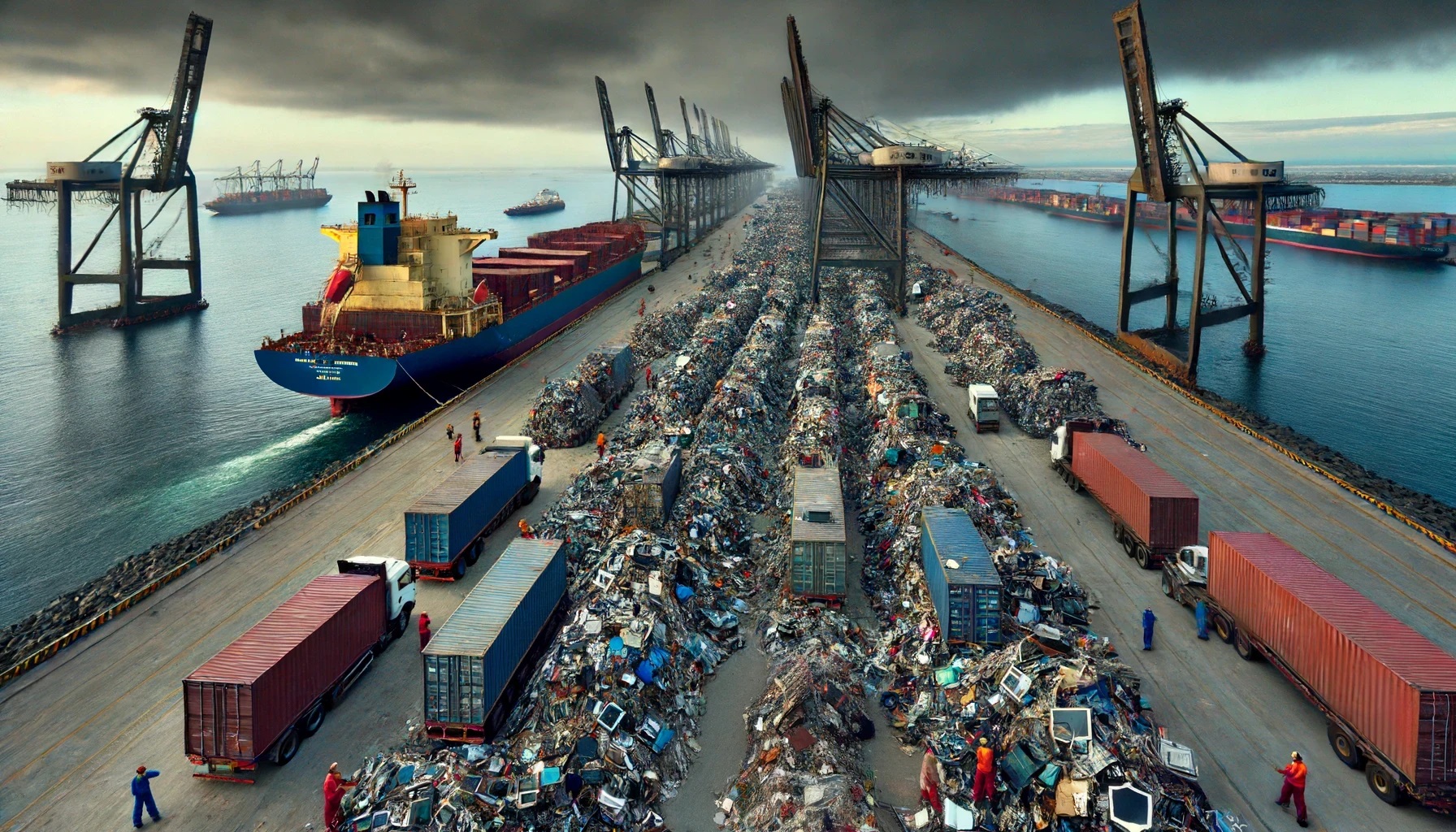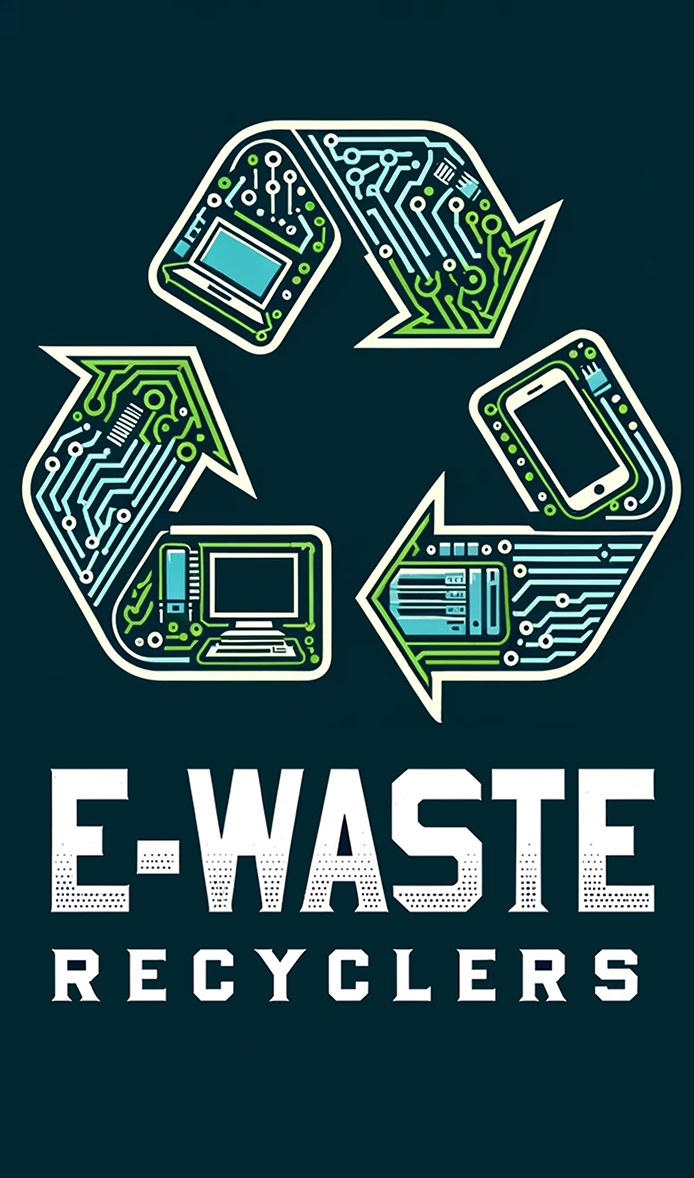Australia’s Shameful E-Waste Exports: Exposing the Toxic Trade

In the land down under, a dark shadow looms over the nation’s glittering electronic landscape. Australia, celebrated for its natural wonders and technological advancements, finds itself grappling with a growing e-waste crisis. As one of the world’s leading contributors to electronic waste per capita, Australia generates a staggering 21.7 kilograms of e-waste per person annually. While the digital revolution has brought countless benefits, the dark side of this progress lies in the alarming amount of discarded electronics illegally exported to developing nations, leaving a trail of environmental devastation and human suffering.
The Journey of Illegal E-Waste Exports
The journey of Australia’s illegal e-waste exports begins innocently enough, with discarded gadgets from households, offices, and retail stores finding their way into collection centres and landfills. However, amid this seemingly benign process, illicit operators lurk, seeking to profit from the toxic trade. These unscrupulous collectors, operating without proper licences or oversight, amass vast quantities of e-waste, bypassing regulations designed to ensure responsible recycling and disposal. The aggregated e-waste is then sold to middlemen or directly to exporters, who are eager to capitalise on the lucrative opportunity.
Mislabeling and Exportation
The next stage of this nefarious journey involves the transportation of e-waste to ports, often under the guise of legitimate export activities. Exporters deliberately mislabel containers as “used goods” or “second-hand electronics,” exploiting loopholes in regulations to circumvent the stringent controls on e-waste exports. Once loaded onto ships, these containers, filled with hazardous materials, make their way to developing countries in Africa and Asia. Lured by the promise of cheap electronics and raw materials, these nations unwittingly become dumping grounds for Australia’s toxic e-waste.
The Black Market Economy
The illegal e-waste trade in Australia is not merely an environmental and health catastrophe; it is a thriving black market economy, fuelled by the allure of substantial profits. E-waste contains a treasure trove of valuable metals, such as gold, silver, and copper, with a tonne of e-waste yielding up to 100 times more gold than a tonne of gold ore. The extraction of these precious materials drives the illicit trade, attracting a wide range of players, from small-time collectors to organised crime syndicates. Exploiting regulatory loopholes and the high demand for second-hand electronics and raw materials in developing countries, these black market operators reap immense profits, with estimates suggesting that the illegal e-waste trade is a multi-million-pound industry.
Devastating Impact on Developing Countries
The impact of Australia’s illegal e-waste exports on receiving countries is devastating. Lacking the necessary infrastructure and regulatory frameworks to safely manage and recycle e-waste, these nations bear the brunt of the environmental and health consequences. Hazardous materials such as lead, mercury, cadmium, and flame retardants leach into the soil and water, contaminating ecosystems and water supplies. Informal recycling operations, often involving untrained workers and children, expose individuals to toxic substances, leading to respiratory problems, skin diseases, and other severe health conditions. The burning of e-waste to retrieve metals releases toxic fumes, causing chronic respiratory issues and increasing the risk of cancer among local communities.
The Urgent Need for Stronger Regulations
The illegal export of e-waste from Australia to developing countries underscores the urgent need for stronger international cooperation and enforcement of e-waste regulations. It is a glaring example of economic exploitation, where the poorest and most vulnerable communities bear the environmental and health costs while illicit operators and exporters reap the profits. Addressing this pressing issue requires a multi-pronged approach, including stricter regulations and enforcement, public awareness campaigns, international collaboration, the promotion of sustainable practices, and support for legitimate recycling industries.
Conclusion
Australia’s illegal e-waste exports represent a shameful chapter in the nation’s environmental record. The profound and long-lasting impacts on receiving countries demand immediate action and attention. By exposing the toxic trade and advocating for stronger regulations, international cooperation, and sustainable practices, we can work towards a future where the burden of electronic waste is managed responsibly and ethically. It is imperative that Australia takes decisive steps to stem the flow of illegal e-waste exports and protect vulnerable communities from the scourge of this toxic trade. The time for action is now, and the responsibility lies with us all to ensure a cleaner, safer, and more sustainable future for generations to come.
For more information on responsible e-waste disposal and recycling practices in Melbourne and across Australia, visit E-Waste Recyclers.
Is eWaste a problem for your business? It doesn’t need to be.
Stay Informed with the Latest in E-Waste Recycling!
Join our mailing list to receive:
Breaking News: Stay updated on the latest developments in e-waste recycling across Australia.
Legislation Updates: Be the first to know about new laws and regulations affecting e-waste management in Australia.
Business Practices: Gain insights into best practices for sustainable e-waste disposal tailored for Australian businesses.
Expert Tips: Get expert advice on how to manage and reduce your electronic waste effectively.
Sign up today and never miss an update! Simply enter your email address below to join our community of environmentally conscious individuals and businesses in Australia.
